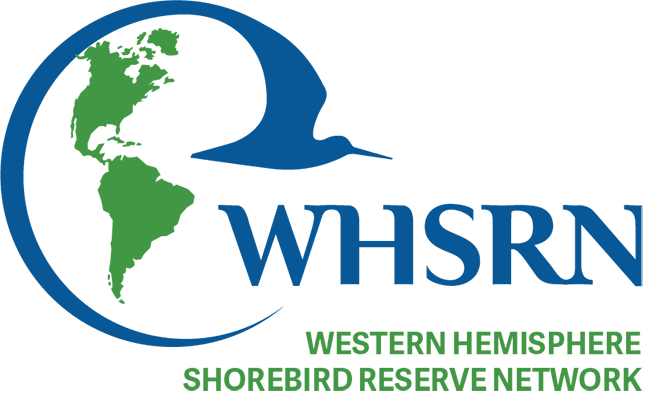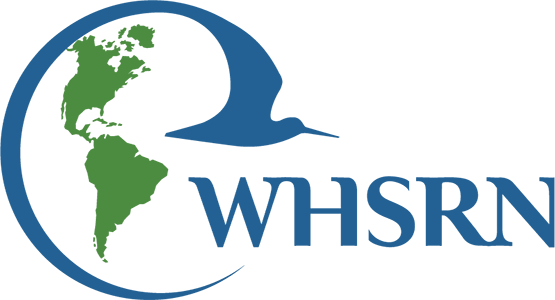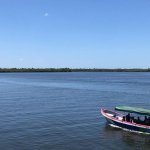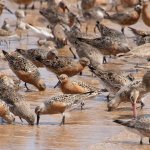Every year, the Coastal Solutions Fellowship Program – administered by the Cornell Lab of Ornithology and supported by the The David and Lucile Packard Foundation. – selects six scholars from countries along the Pacific Coast of the Americas, and supports them in the design and implementation of solutions to address threats to critical sites for shorebirds, thereby creating improved conditions for conservation.
The principal objective of the Coastal Solutions Program is to conserve coastal habitats and shorebird populations by forming collaborations between biologists, conservationists, architects, planners, and engineers, and to develop the knowledge, resources and abilities necessary to do so.

Over the next two years, as Fellows from Mexico, Nicaragua, Panama, Ecuador and Peru are developing their projects they will be in collaboration with stakeholders. For the third consecutive year (and for the first time in virtual mode) Policy and Governance Specialist Diego Luna Quevedo, conducted the training workshop,“Good Governance for Coastal Solutions”.
The training workshop was in two parts, one at the end of May and another at the beginning of June. This workshop allowed for the building of a conceptual framework on Good Governance which is applicable to the coastal solutions of the Program, as well as the application of analytical, planning and management tools for each of the six initiatives led by the Fellows.
Osvel Hinojosa, Coastal Solutions Program Director with the Cornell Lab of Ornithology highlighted that “The training in Good Governance is fundamental for the program, as it allows the scholars, mentors and collaborators to define what type of articulations and agreements are necessary to successfully implement the solutions.”
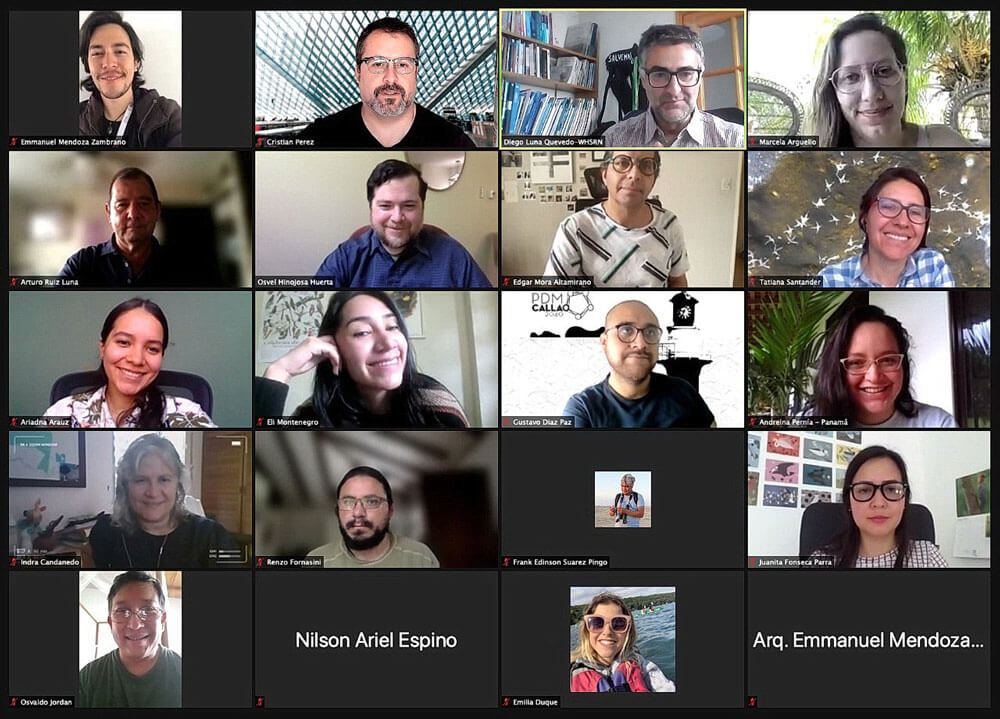
This is the first time the “Good Governance for Coastal Solutions” workshop is delivered virtually.
Ariadna Arauz, Program Fellow from Panama part of the third cohort of the program, is implementing a the “Regenerative Master Plan” project for the areas of Juan Díaz and Don Bosco in Panama Bay. She noted that “the workshop helped us to rapidly organize the purposes and objectives of our initiatives, and in the end obtain a basic guide with starting points and key paths for the implementation of Governance in our projects. One of the most significant things I learned is the strategy for approaching stakeholders in a progressive manner, one by one, to understand them and identify the common ground amongst the interests of each one”.
Sharon Montecino, Chilean Program Fellow from the first cohort of the program ,executed a successful project reducing threats in the Maipo River mouth and estuary (“Estuario y desembocadura del río Maipo”) WHSRN site on the coast of central Chile. Following her experience at the workshop, she commented that “the training I received in Governance was very valuable for the implementation of my project. It gave me tools to enjoy greater success in approaching the different interest groups and to build trust among the local stakeholders. I learned that, in these kinds of projects, although the efforts a concentrated fundamentally at the scale of the site, the Governance must be built upon multiple levels of interactions and agreements, and it is these that guarantee the sustainability of the solutions over time.”

Coastal Solutions Fellows: Sharon Montecino (Chile), Varinia Sagastume (Guatemala) and Ariadna Arauz (Panama)
Biologist Varinia Sagastume expressed that “the knowledge acquired on the construction of a good governance process was very valuable. Thanks to the principles of good governance, I have been able to generate a shared vision with shrimp producers to reach agreements on the implementation of production practices that generate benefits for both production and conservation.” Varinia is implementing the project “Strategies for shorebird conservation through best management practices in salt and shrimp farms on the Pacific coast of Guatemala” as part of the second cohort of Program fellows.
In the workshop stakeholder analysis was conducted, critical decisions were simulated, and action and Governance plans were developed. These will function as a roadmap for the articulations and agreements that will be reached during the two-year execution period of the scholarships.
For more information about the Coastal Solutions Program contact Program Director Osvel Hinojosa.
For more information about capacity building in good governance and accompanying processes, contact Diego Luna Quevedo, Senior Specialist, Policy and Governance for Manomet Inc.
Cover Photo: Fellows and mentors from 2020 cohort. Photo: Amaranta Delgado


